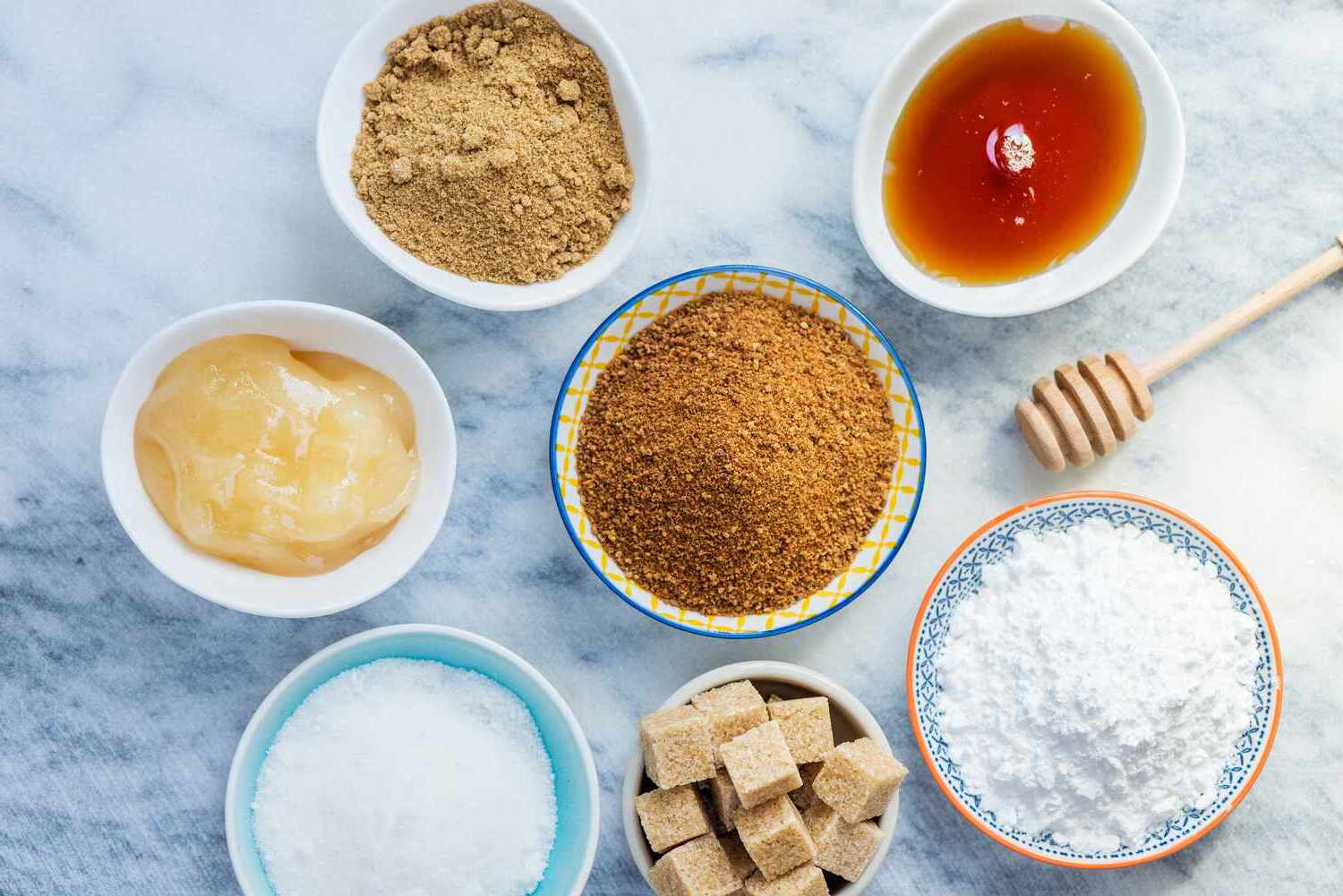
Alternative sweeteners have become popular as people look for ways to reduce sugar intake without sacrificing taste. These sugar substitutes come in various forms, from natural options like stevia and monk fruit to artificial ones such as aspartame and sucralose. But are they safe? Yes, alternative sweeteners are generally safe when consumed within recommended limits. They can help manage weight, control blood sugar levels, and even prevent tooth decay. However, not all sweeteners are created equal, and some may have side effects or interact with certain medications. Understanding the differences between these sweeteners can help you make informed choices for a healthier lifestyle. Ready to learn more? Let's dive into 30 fascinating facts about alternative sweeteners!
What Are Alternative Sweeteners?
Alternative sweeteners are substitutes for sugar that provide sweetness without the same calories. They are often used by people looking to reduce sugar intake or manage conditions like diabetes. Here are some fascinating facts about these sweeteners.
-
Stevia is derived from the leaves of the Stevia rebaudiana plant. It is 200-300 times sweeter than sugar but has no calories.
-
Aspartame is a low-calorie sweetener used in many diet sodas. It is about 200 times sweeter than sugar.
-
Sucralose, known by the brand name Splenda, is 600 times sweeter than sugar and can be used in baking.
-
Erythritol is a sugar alcohol found in some fruits. It has about 70% of the sweetness of sugar but almost no calories.
-
Xylitol is another sugar alcohol, often used in sugar-free gum. It has the same sweetness as sugar but fewer calories.
Health Benefits of Alternative Sweeteners
Many people turn to alternative sweeteners for their potential health benefits. Here are some key points to consider.
-
Blood Sugar Control: Many alternative sweeteners do not raise blood sugar levels, making them suitable for diabetics.
-
Weight Management: Since they have fewer calories, they can help with weight loss or maintenance.
-
Dental Health: Unlike sugar, some sweeteners like xylitol can reduce the risk of cavities.
-
Low Glycemic Index: Sweeteners like stevia and erythritol have a low glycemic index, meaning they have minimal impact on blood sugar.
-
Antioxidant Properties: Stevia contains compounds that have antioxidant properties, which can help fight free radicals in the body.
Common Uses of Alternative Sweeteners
Alternative sweeteners are versatile and can be used in various ways. Here are some common applications.
-
Beverages: Many diet sodas and sugar-free drinks use alternative sweeteners.
-
Baking: Some sweeteners like sucralose can be used in baking without losing sweetness.
-
Candy: Sugar-free candies often contain sweeteners like xylitol or erythritol.
-
Gum: Xylitol is a popular choice for sugar-free gum due to its dental benefits.
-
Dairy Products: Some yogurts and ice creams use alternative sweeteners to reduce sugar content.
Potential Drawbacks of Alternative Sweeteners
While alternative sweeteners have many benefits, they also come with some potential drawbacks.
-
Digestive Issues: Some people may experience digestive problems like bloating or diarrhea when consuming sugar alcohols.
-
Aftertaste: Some sweeteners, like stevia, can have a bitter aftertaste that not everyone enjoys.
-
Allergic Reactions: Though rare, some individuals may be allergic to certain sweeteners like aspartame.
-
Overconsumption: Relying too much on sweeteners can lead to overconsumption of sweet foods, which may not be healthy.
-
Regulation: Not all sweeteners are approved for use in every country, so availability may vary.
Environmental Impact of Alternative Sweeteners
The production and use of alternative sweeteners also have environmental implications.
-
Stevia Farming: Stevia farming requires less land and water compared to sugarcane or beet farming.
-
Energy Use: Producing some artificial sweeteners can be energy-intensive.
-
Biodegradability: Some sweeteners, like erythritol, are biodegradable and less harmful to the environment.
-
Packaging: Many sweeteners come in single-use packets, contributing to plastic waste.
-
Sustainable Practices: Some companies are adopting more sustainable practices in the production of alternative sweeteners.
Fun Facts About Alternative Sweeteners
Here are some interesting tidbits that you might not know about alternative sweeteners.
-
Ancient Use: Stevia has been used for centuries by indigenous people in South America.
-
NASA: Aspartame was initially discovered during research for NASA.
-
Heat Stability: Sucralose remains stable at high temperatures, making it ideal for cooking and baking.
-
Natural Sources: Erythritol is found naturally in some fruits like grapes and melons.
-
Pet Safety: Xylitol is toxic to dogs, so keep sugar-free gum and candies away from pets.
Sweet Endings
Alternative sweeteners offer a variety of benefits and options for those looking to reduce sugar intake. From stevia to monk fruit, these substitutes can help manage blood sugar levels and calorie consumption. They come in many forms, each with unique properties and uses. Some, like erythritol, provide a similar taste to sugar without the calories, while others, like xylitol, even offer dental benefits.
However, it's important to use these sweeteners in moderation. Overconsumption can lead to digestive issues or other health concerns. Always check labels and consult with a healthcare provider if you have any medical conditions.
Incorporating alternative sweeteners into your diet can be a smart move for better health. Just remember, balance is key. Enjoy the sweetness without the guilt, and make informed choices for a healthier lifestyle.
Was this page helpful?
Our commitment to delivering trustworthy and engaging content is at the heart of what we do. Each fact on our site is contributed by real users like you, bringing a wealth of diverse insights and information. To ensure the highest standards of accuracy and reliability, our dedicated editors meticulously review each submission. This process guarantees that the facts we share are not only fascinating but also credible. Trust in our commitment to quality and authenticity as you explore and learn with us.


